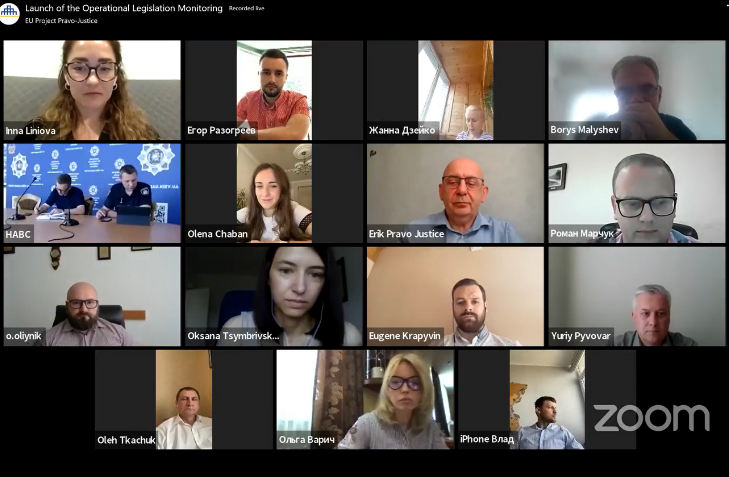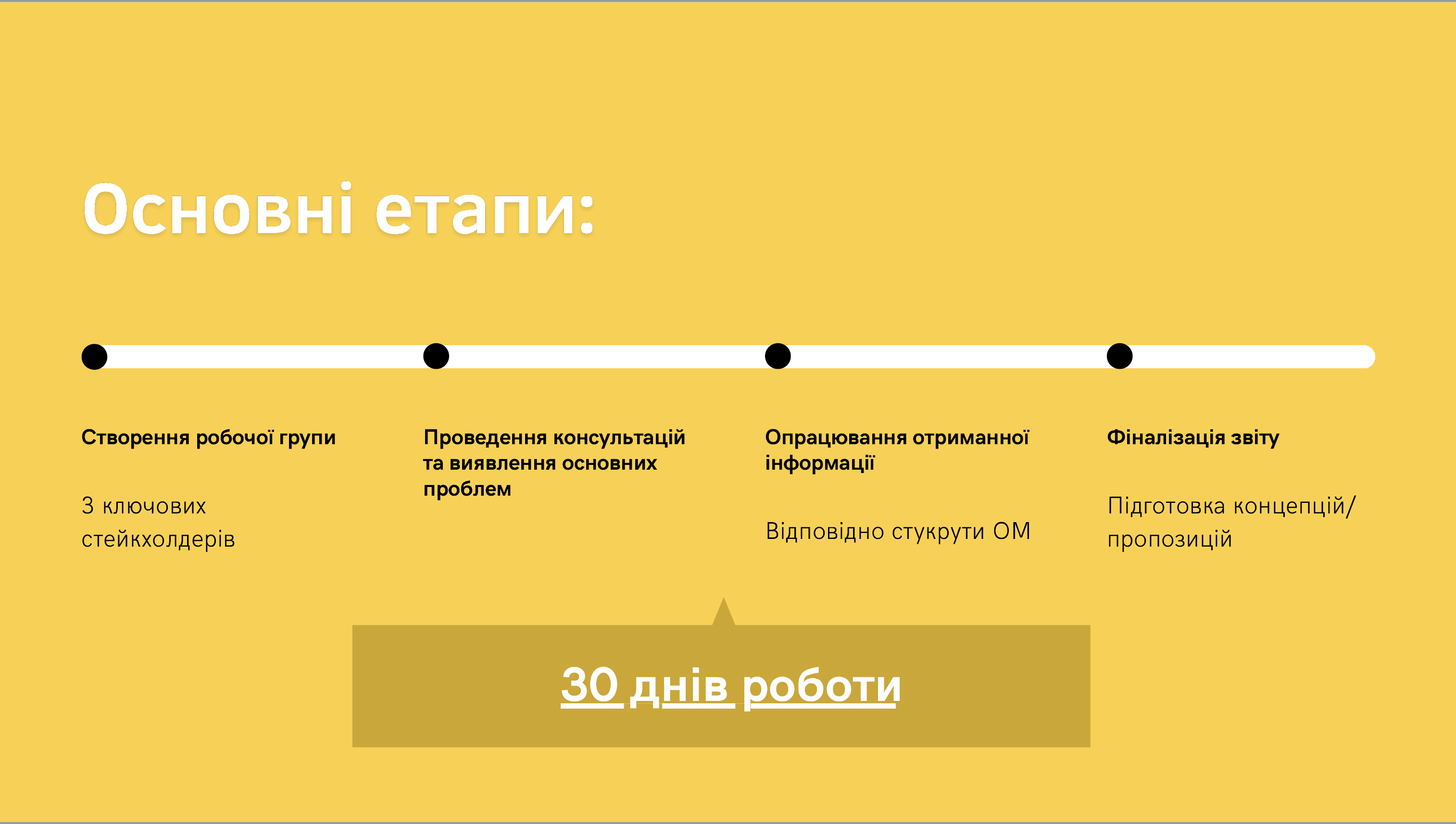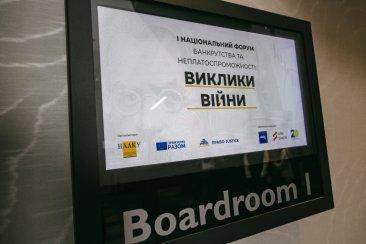ON JUNE 13, CONSULTATIONS ON OPERATIONAL MONITORING OF THE IMPLEMENTATION AND ANALYSIS OF THE EFFECTIVENESS OF THE ADOPTED LEGAL ACTS BEGAN WITH THE PARTICIPATION OF REPRESENTATIVES OF THE DIRECTORATE OF JUSTICE AND CRIMINAL JUSTICE OF THE MINISTRY OF JUSTICE OF UKRAINE, THE SUPREME COURT, THE VERKHOVNA RADA, THE EU PROJECT “PRAVO-JUSTICE”, THE UKRAINIAN BAR ASSOCIATION, AND REGIONAL COUNCILS ON JUSTICE REFORM.

The purpose of the monitoring is to develop urgent concepts/proposals for laws and other regulations in areas that require prompt legal regulation during martial law. “We actively support operational monitoring of legislation, which is extremely important and timely in the current rapidly changing environment. Legislative changes, even during martial law, should be based on objective data,” emphasized Erik Svanidze, c. о. Head of the EU Project “Pravo-Justice”. Within 30 days, the Directorate of Justice and Criminal Justice of the Ministry of Justice of Ukraine, together with partners, will identify conflicting, declarative, and outdated norms to eliminate internal contradictions and gaps in laws and other regulations that require urgent legal regulation during martial law. According to Oleksandr Oliynyk, Director of the Justice and Criminal Justice Directorate of the Ministry of Justice of Ukraine, the presentation of the monitoring report is scheduled for the end of July. “Conducting operational monitoring of legislation at the initiative of the Ministry of Justice is an extremely correct step to systematically address the problems that have arisen under martial law. In consultations with a range of different stakeholders at the central and regional levels, as well as representatives of civil society organizations, we are jointly identifying existing problems, working on them and, I hope, will receive substantive and high-quality proposals for their solution.”, – said Oksana Tsymbrivska, Deputy Head of the EU Project “Pravo-Justice”.
“The Ukrainian Bar Association is pleased to join the operational monitoring process. This process is very important given the war that has been going on in Ukraine for over three months. It is important to adapt the legislation and the justice system in general to the conditions we have. We hope that the results of the monitoring will turn into legislative proposals that will be supported by the Parliament.”, – said Inna Linyova, Executive Director of the All-Ukrainian NGO “Ukrainian Bar Association”. During the event, Yegor Razogreev, Head of the Expert Group on Justice and Criminal Justice of the Directorate of Justice and Criminal Justice of the Ministry of Justice of Ukraine, presented to the stakeholders the mechanism for urgent monitoring, which will be conducted in three areas: judicial system, judicial proceedings and criminal justice.

For each area, a working group consisting of the Ministry, experts from the EU Project “Pravo-Justice” and the UBA formulated a number of problematic issues that need to be addressed as soon as possible and will be investigated during the operational monitoring, namely Judiciary
- Temporary secondment of judges from the occupied territories from courts that have ceased to operate (procedure for secondment, verification of judges’ connections)
- Security measures within the functioning of courts and professional activities of judges
- Improving (clarifying) access to court decisions
- Establishment of a special regime for the work of courts, the court apparatus, as well as the exercise of judges’ powers in the context of armed conflict (including the possibility of remote work outside the court)
- Improvement of the procedure for registration and auto-distribution of procedural documents, introduction of secret record keeping in the local court
Legal proceedings
- Renewal/extension of terms under martial law
- Restoration of lost proceedings
- Remote consideration of cases
- Expansion of the categories of written proceedings
- Establishing legal facts in time of war
Criminal justice
- Empowerment of employees of operational units to carry out certain procedural actions/investigative actions (will reduce the workload of investigators and prosecutors)
- Possibility of written proceedings (in the court of cassation, review of decisions of the investigating judge to return, refuse to open proceedings, resolution of certain issues by the investigating judge)
- Remote criminal proceedings (participation of participants in criminal proceedings via video conferencing outside the courtroom)
- Introduction of the institution of counteracting abuse of procedural rights by participants in criminal proceedings (possible abuses and necessary means of responding to them).
- Solving the problematic issues of preventive measures in the form of house arrest and a ban on changing the place of residence under martial law, detention as an exceptional preventive measure
- Criminal liability for collaboration activities
On June 14 and 15, open professional discussions of these problems were held with representatives of the judiciary, lawyers, experts of the EU Project “Pravo-Justice”, the UBA, and representatives of the Regional Councils for Justice Reform to discuss ways to solve them. This information will be processed by the Directorate of Justice and Criminal Justice of the Ministry of Justice of Ukraine and included in the report for further preparation of relevant legislative concepts and proposals.


